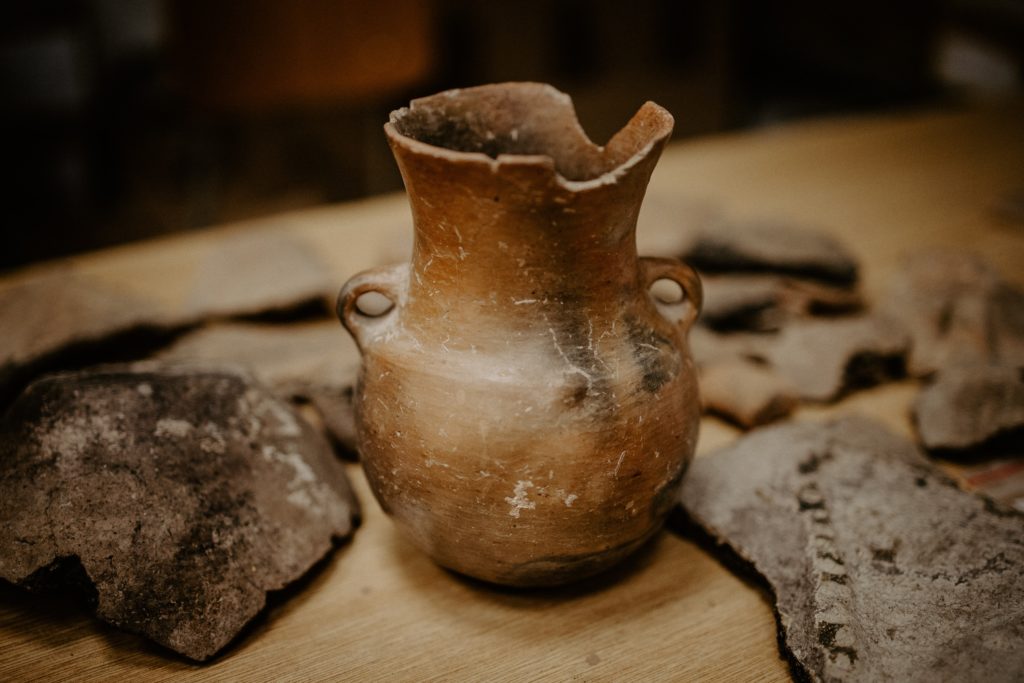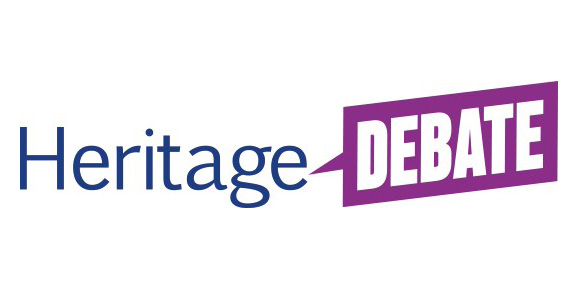Blog from John P T Gardner (PhD Student) on the future of heritage.
Shared in the lead-up to The Heritage Alliance’s Heritage Debate 2022: Heritage in 20 years.

Heritage in 20 Years: what will matter most?
Why is there no ‘we’ in archaeology?
The community of practice has been allowed to become dysfunctional and geographically unbalanced.
Professionalisation and specialisation have been accompanied by segmentation.
Skewed’, vulnerable business models and funding regimes have encouraged the growth of discrete paid-for professional ‘bubbles’, uncomfortable ‘not so happy’ places in the commercial sector, in local government, in higher education and in national representative bodies.
This environment seems to be based on ‘trust me I’m an archaeologist’ models of trustee oversight, senior leadership and management.
Those models favour marguee projects, and the voices of the ‘loud labourers’.
Those models are responsible for downgrading community based development and capacity building to low/no value income streams.
Community projects are often the province of paid for professionals who know best, who impose maladapted standard working methods on diverse projects.
Volunteers (us), irrespective of experience, often belittled as ’hobbyists’ ‘enthusiasts’ ‘amateurs’ are offered public benefits defined for us by paid for professionals.
We are an audience to be engaged, informed, entertained, a critical mass for you to argue for greater status and reward for the work of paid for professionals.
We are ‘participants’ to be harnessed to cart before the horse ‘trust me I’m an archaeologist’ marketing, promotion and events management.
The most we can hope for from you, heritage professionals in archaeology and, presumably your trustees, is honorary status as ‘assistants’ and occasional award recipients. We are not valued or accredited as ‘archaeologists’ in our own right.
We facilitate your practises by buying in to the affable camaraderie of paid for professionals and the congenial individualism underpinning large scale marquee projects, designed to keep the punters happy. We switch between ‘patient plodding’ and ‘quietly quitting’ (from the effort of making our voices heard and getting a place at the paid for table)
Stepping stones – what’s on your agenda for change?
Getting 25% of income at sustainable margins from community led and designed archaeology projects
Knowing the non-developer led patch. The ‘capacity, resource, workload’ argument that there is no time to do this is no longer tenable. I know it is possible for managers to use desk based digital (including social media) research to map connections and potential action areas across a region. I’ve done it. Have you? You’ve got early career, younger staff who could do this at a drop of a hat.
Bursting your bubbles. Try talking to organisations like the Centre for Social Justice and Community Development at Durham University. Building collaborations between community groups and the paid for professional is their meat and drink. Better still encourage your young and up and coming staff to join free networks like these. Try UKPRN.
Specialising in making connections, ‘knowledge transfer across the private, public and voluntary sectors. Ever thought of joining the cross sectoral Common Purpose programme or better still putting your up and coming younger staff through it?
Adopting ‘inside out ‘ways of working; make your facilities and specialist staff accessible. Karen Milek (Durham) has done and is still doing it. Did you know? Ask yourself ‘What do(should) I know about innovative practice?
Learning how to enable community led projects Move on from ‘knowing best’. Accept that you probably ‘know different’. Combine your ‘different’ with the ‘different’ local knowledges of community volunteers (and the ‘knowledges’ of your up and coming junior staff).
Putting time and resource in to turning ‘assistants’ in to ‘activists’ advocates, campaigners and lobbyists for archaeology in their local networks.
Advertising and promoting the how not just the who and the what. Voluntary and Community archaeology is much more than a content business and promotional platform for the paid for professional.
Moving on from ‘money for old rope’ practices of using paid professionals to deliver basic techniques. Mentoring community groups through doing these for themselves (they already know that they can).
Adding value by coaching more advanced techniques and specialist skills, those that are beyond the current data gathering and analysis skills of skilled community volunteers.
Building community led archaeology into initial training, vocational training and CPD?. CiFA are part of the way there but have got long way to go to go.
Re-skilling managers, senior leaders and trustees in voluntary and community sector leadership
Re skilling trustee and managers in effective use of digital (including social) media for promotion and publication. The Heritage Allliance, Heritage Digital Academy and Charity Digital have been offering training for 2 years. Where you or your senior managers there? Do you really ‘know it all’ already?
– John P T Gardner, PhD Student

Explore other perspectives on ‘Heritage in 20 Years: what will matter most’ over on our event page for Heritage Debate 2022.

